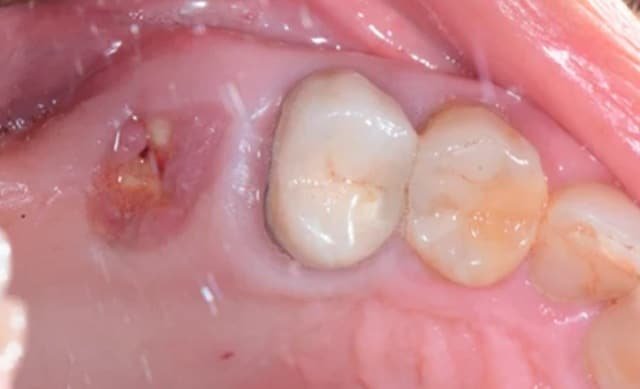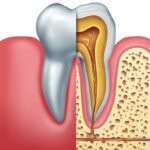Pregnancy is a transformative and exciting time in a woman’s life, but it can also come with unexpected challenges, including dental issues. One of the most common problems experienced by expectant mothers is tooth pain, which can range from mild discomfort to unbearable agony.
In this comprehensive guide, we will explore the causes of unbearable tooth pain during pregnancy, how to manage it, home remedies to alleviate the discomfort, when to seek professional dental care, and the treatment options available to ensure both the well-being of the mother and the baby.
What Causes Unbearable Tooth Pain While Pregnant?
Unbearable tooth pain during pregnancy can have various underlying causes, and understanding these factors is crucial to effective management. Some of the primary reasons for tooth pain in expectant mothers include:
1. Hormonal Changes:
Pregnancy hormones, particularly estrogen and progesterone, can lead to increased blood flow to the gums. This can result in gum sensitivity, inflammation, and an increased risk of gingivitis (gum disease). Irritated gums can cause tooth pain and discomfort.
2. Morning Sickness:
Morning sickness, a common occurrence in pregnancy, involves vomiting and the acidic stomach contents coming into contact with teeth. The acid can erode tooth enamel, leading to tooth sensitivity and pain.
3. Increased Blood Volume:
During pregnancy, there is an increase in blood volume to support the growing fetus. This can lead to swollen blood vessels in the gums, making them more susceptible to bleeding and inflammation.
4. Poor Oral Hygiene:
Pregnant women may experience changes in their oral care routine due to morning sickness, fatigue, or other pregnancy-related factors. Neglecting proper oral hygiene can result in tooth decay and gum problems, leading to tooth pain.
5. Bruxism (Teeth Grinding):
Stress and anxiety during pregnancy can trigger bruxism, a condition where individuals grind or clench their teeth, often unknowingly. This can cause tooth pain and jaw discomfort.
6. Dental Conditions:
Pre-existing dental issues, such as cavities, cracked teeth, or gum disease, can worsen during pregnancy due to hormonal changes and increased susceptibility. These conditions can lead to severe tooth pain.
How to Manage Unbearable Tooth Pain While Pregnant
Managing unbearable tooth pain during pregnancy requires a holistic approach to ensure the well-being of both the mother and the developing baby. Here are some strategies for managing tooth pain:
1. Maintain Good Oral Hygiene:
Brush your teeth gently with a soft-bristle toothbrush at least twice a day, using fluoride toothpaste. Floss daily to remove food particles and plaque between teeth. Proper oral hygiene can help prevent and alleviate tooth pain.
2. Rinse with Saltwater:
Gargling with warm saltwater can soothe irritated gums and reduce inflammation. Mix half a teaspoon of salt in a glass of warm water and rinse your mouth several times a day.
3. Use a Cold Compress:
Applying a cold compress to the outside of your cheek for 15-20 minutes can help reduce gum and tooth pain by numbing the area and reducing inflammation.
4. Choose Toothpaste for Sensitive Teeth:
Consider using toothpaste formulated for sensitive teeth, as it can help alleviate discomfort caused by tooth sensitivity.
5. Modify Your Diet:
Avoid acidic, sugary, and spicy foods that can exacerbate tooth pain. Opt for a balanced diet rich in calcium and vitamin D to support dental health.
6. Stay Hydrated:
Drinking plenty of water can help flush away acids and bacteria that contribute to tooth pain and decay.
7. Practice Stress Reduction:
Engage in relaxation techniques like meditation, deep breathing, or prenatal yoga to reduce stress, which can exacerbate tooth grinding and jaw clenching.
8. Use a Nightguard:
If you suspect teeth grinding (bruxism) is causing your tooth pain, consult your dentist about wearing a custom-fitted nightguard to protect your teeth while you sleep.
9. Over-the-Counter Pain Relief:
Consult with your healthcare provider or dentist before taking any over-the-counter pain relief medications. They can advise you on safe options during pregnancy.
Home Remedies for Unbearable Tooth Pain While Pregnant:
In addition to the general management strategies mentioned above, some home remedies can provide relief from unbearable tooth pain during pregnancy. These remedies are generally safe and can be used alongside the guidance of your healthcare provider:
1. Clove Oil:
Clove oil has natural analgesic and anti-inflammatory properties. Apply a small amount of clove oil to a cotton ball and gently place it on the affected tooth or gums for temporary pain relief.
2. Ice Chips:
Sucking on ice chips can numb the painful area and reduce inflammation in the gums.
3. Ginger Tea:
Ginger has anti-inflammatory properties and can help alleviate pain. Sip on ginger tea to soothe toothache discomfort.
4. Peppermint Tea:
Peppermint tea can have a calming effect on the gums and help reduce pain. Ensure the tea is caffeine-free.
When to See a Dentist for Unbearable Tooth Pain While Pregnant:
While home remedies and self-care measures can provide temporary relief, it’s crucial to seek professional dental care if you experience unbearable tooth pain during pregnancy. Here are some signs that indicate it’s time to see a dentist:
1. Severe or Prolonged Pain:
If your tooth pain is severe, persistent, or worsening, it may indicate an underlying dental issue that requires professional treatment.
2. Swelling or Infection:
Swelling, redness, or pus around the affected tooth or in the gums can be signs of infection, which should be addressed promptly.
3. Fever:
A fever accompanied by tooth pain may indicate an infection that has spread. This requires immediate attention to prevent further complications.
4. Bleeding Gums:
If your gums bleed excessively when brushing or flossing, it may be a sign of gum disease (gingivitis) that needs professional treatment.
5. Broken or Chipped Teeth:
If a tooth is cracked or chipped, it can cause significant pain and should be examined by a dentist.
Treatment options for unbearable tooth pain while pregnant:
Treatment options for unbearable tooth pain while pregnant include:
- Over-the-counter pain relievers: Over-the-counter pain relievers, such as acetaminophen or ibuprofen, can be effective for relieving mild to moderate tooth pain. However, it is important to talk to your doctor before taking any over-the-counter medications while pregnant, as some medications may not be safe for pregnant women.
- Prescription pain relievers: If over-the-counter pain relievers are not effective, your dentist may prescribe a stronger pain reliever.
- Antibiotics: If your tooth pain is caused by an infection, your dentist may prescribe antibiotics to clear the infection.
- Root canal therapy: If the nerve in your tooth is damaged or infected, your dentist may recommend root canal therapy. Root canal therapy is a procedure that removes the damaged or infected nerve and pulp tissue from the inside of the tooth.
- Tooth extraction: If your tooth is beyond repair, your dentist may recommend tooth extraction.
Which treatment option is right for you will depend on the underlying cause of your tooth pain and the severity of your pain. Your dentist will discuss the best treatment options with you and help you to make the best decision for your individual needs.
In addition to dental treatment, there are a number of things you can do at home to manage your tooth pain:
- Apply a cold compress to your cheek: A cold compress can help to reduce inflammation and pain.
- Take warm salt water rinses: Warm salt water rinses can help to cleanse the area and reduce inflammation.
- Avoid chewing on the side of your mouth where you have pain: Chewing can aggravate the pain and inflammation.
- Eat soft foods: Avoid eating hard, crunchy, or sticky foods, as these can irritate your tooth and gums.
If you are experiencing unbearable tooth pain while pregnant, please see a dentist as soon as possible. Early treatment can help to prevent further complications and relieve your pain.












